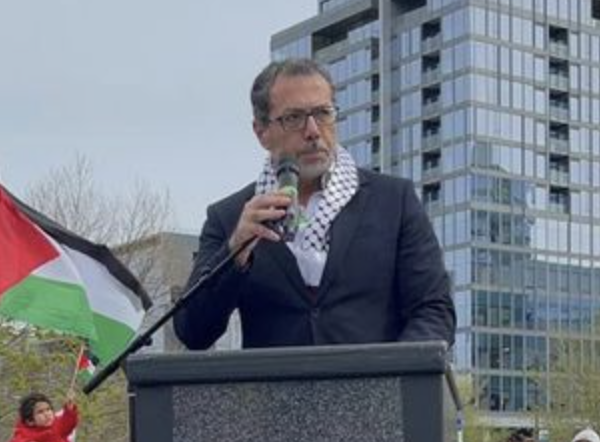
Saturday, 29 March 2025, 4:51 pm
Opinion: Ramzy Baroud
In a genocidal war that has spiraled into a struggle for
political survival, Israeli Prime Minister Benjamin
Netanyahu’s coalition and the global powers supporting him
continue to sacrifice Palestinian lives for political
gain.
The sordid career of Israel’s extremist National
Security Minister, Itamar Ben-Gvir, epitomizes this tragic
reality.
Ben-Gvir
joined Netanyahu’s government coalition following the
December 2022
elections. He remained in the coalition after the
October 7 2023 war and genocide, with the understanding that
any ceasefire in Gaza would force his departure.
As
long as the killing of Palestinians and the destruction of
their cities continued as long as Ben-Gvir stayed on
board—though neither he nor Netanyahu had any real
‘next-day’ plan, other than to carry out some of the most
heinous massacres against a civilian population in recent
history.
On January 19, Ben-Gvir
left the government immediately following a ceasefire
agreement, which many argued would not last. Netanyahu’s
untrustworthiness, along with the collapse of his government
if the war ended completely, made the ceasefire
unfeasible.
Advertisement – scroll to continue reading
Ben-Gvir
returned when the genocide resumed on March 18. “We
are back, with all our might and power!” he
wrote In a tweet on the day of his
return.
Israel lacks a clear plan because
it cannot defeat the Palestinians. While the Israeli army
has inflicted suffering on the Palestinian people like no
other force has against a civilian population in modern
history, the war endures because the Palestinians refuse to
surrender.
Yet, Israel’s military
planners know that a military victory is no longer possible.
Former Defense Minister Moshe Ya’alon recently added his
voice to the growing chorus,
stating during an interview on March 15 that “revenge
is not a war plan”.
The Americans, who supported
Netanyahu’s violation of the ceasefire—thus resuming the
killings—also
understand that the war is almost entirely a political
struggle, designed to keep figures like Ben-Gvir and
extremist Finance Minister Bezalel Smotrich in Netanyahu’s
coalition.
Though “war is the continuation of
politics by other means,” as Prussian General Carl von
Clausewitz once
surmised, in Israel’s case, the ‘politics’ behind the
war is not about Israel as a state but about Netanyahu’s
own political survival. He is sacrificing Palestinian
children to stay in power, while his extremist ministers do
the same to expand their support among right-wing,
religious, and ultra-nationalist constituencies.
This
logic—that Israel’s war on Gaza reflects internal
politics, ideological warfare, and class
infighting—extends to other political players as
well.
The Trump administration supports
Israel as payback for the financial backing it
received from Netanyahu’s supporters in the US during
the last elections. On the other hand, Britain
remains steadfast in its commitment to Tel Aviv, despite
the political shifts in Westminster, thus continuing to
align with US-Israeli interests while disregarding the
wishes of its own population. Meanwhile, Germany, it’s
said, is driven by the
guilt of its past crimes, while other Western
governments pay lip service to human rights, all the while
acting in ways that contradict their stated foreign
policies.
This mirrors the dystopian
world of George Orwell’s ‘1984’, where
perpetual war is waged based on cynical and
false assumptions, where “war is peace… freedom is
slavery… and ignorance is strength.”
Indeed, these
elements are reflected in today’s equally dystopian
reality. However, Israel substitutes ‘peace’ with
‘security,’ the US is motivated by dominance and
‘stability,’ and Europe continues to speak of
‘democracy.’
Another key difference is that
Palestinians do not belong to any of these ‘superstates.’
They are treated as mere pawns, their deaths and enduring
injustice used to create the illusion of ‘conflict’ and to
justify the ongoing prolongation of the war.
The
deaths of Palestinians—now
numbering over 50,000—are widely reported by
mainstream media outlets, yet rarely do they mention that
this is not a war in the traditional sense, but a
genocide, carried out, financed, and defended by Israel
and Western powers for domestic political reasons.
Palestinians continue to resist because it is their only
option in the face of utter destruction and
extermination.
Netanyahu’s war, however, is not
sustainable in the Orwellian sense, either. For it to be
sustainable, it would need infinite economic resources,
which Israel, despite US generosity, cannot
afford. It would also need an endless supply of
soldiers, but reports
indicate that at least half of Israel’s reserves are
not rejoining the army.
Furthermore, Netanyahu does
not merely seek to sustain the war; he aims to
expand it. This could shift regional and international
dynamics in ways that neither Israeli leaders nor their
allies fully understand.
Aware of this, Arab leaders
met in Cairo on March 4 to propose an alternative to
Netanyahu-Trump’s plan to ethnically cleanse Palestinians
from Gaza. However, they have yet to take meaningful action
to hold Israel accountable if it continues to defy
international and humanitarian laws—as it has since the
Arab summit.
The Arab world must escalate beyond mere
statements, or the Middle East may endure further war, all
to prolong Netanyahu’s coalition of extremists a little
longer.
As for the West, the crisis lies in its moral
contradictions. The situation in Gaza embodies Orwell’s
concept of “doublethink”—the power of holding two
contradictory beliefs in one’s mind simultaneously and
accepting both. Western powers claim to support human rights
while simultaneously backing genocide. Until this dilemma is
resolved, the Middle East will continue to endure suffering
for years to come.
– Dr. Ramzy Baroud is a
journalist, author and the Editor of The Palestine
Chronicle. He is the author of six books. His latest book,
co-edited with Ilan Pappé, is ‘Our
Vision for Liberation: Engaged Palestinian
Leaders and Intellectuals Speak Out’. His other books
include ‘My Father was a Freedom Fighter’ and ‘The
Last Earth’. Baroud is a Non-resident Senior Research
Fellow at the Center for Islam and Global Affairs (CIGA).
His website is www.ramzybaroud.net
